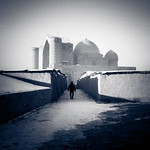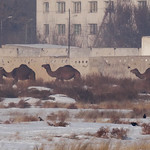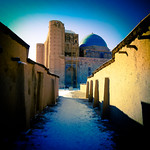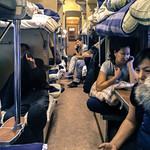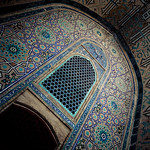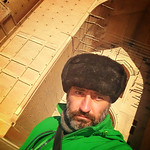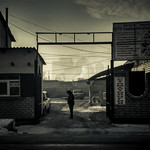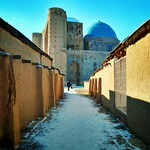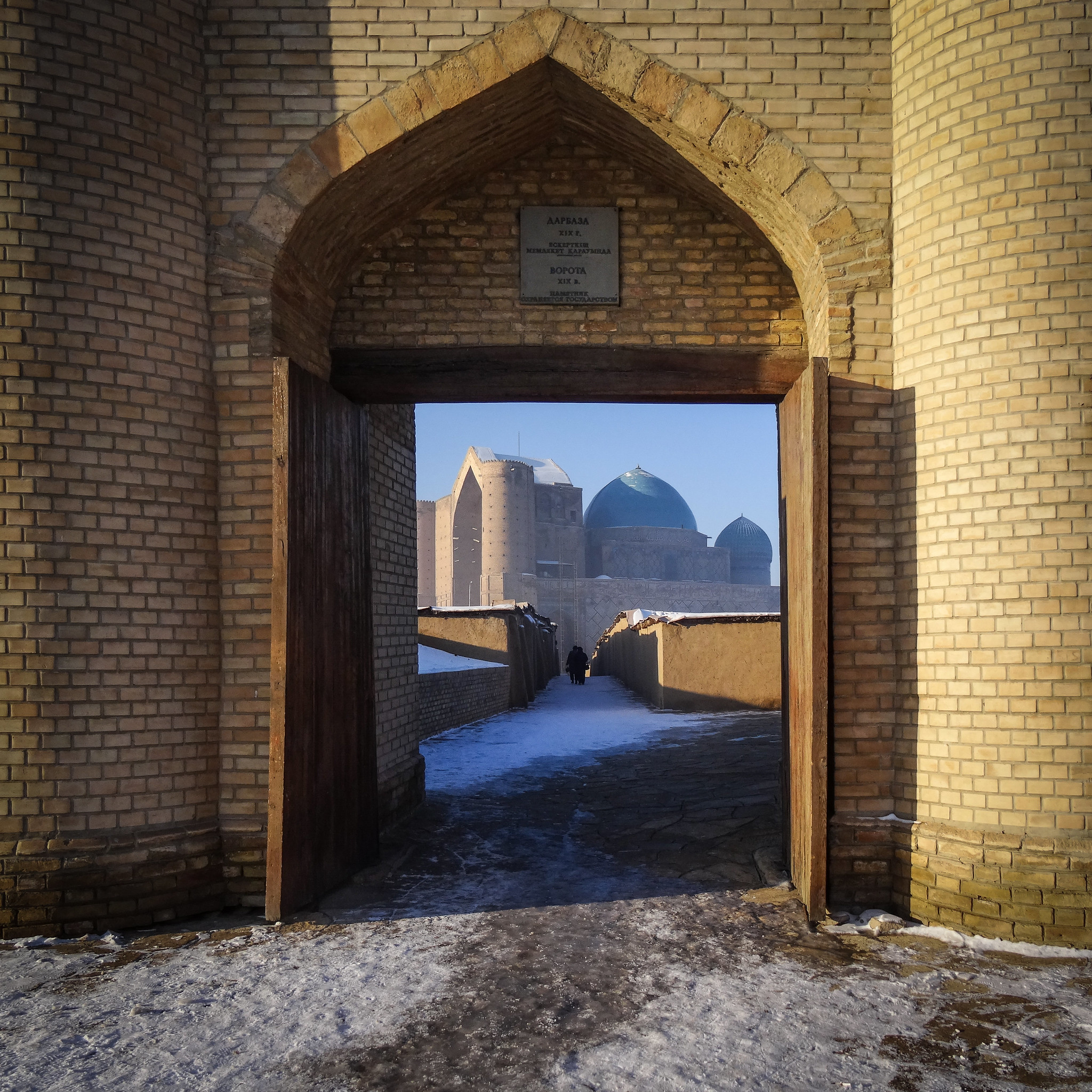Tombs of Turkestan
Not well known as a city, Turkestan’s name is often confused with the country Turkmenistan. It doesn’t help that there used to be a region, roughly matching with the borders of modern Turkmenistan, that used to be called Turkestan.
Turkestan grew around the mausoleum of the Sufi mystical poet Kozha Akhmed Yasaui, the ‘first great Muslim holy man’. The mausoleum was built by Tamerlane, or Timur Lenk, in the late 14th century, though the poet died as early as 1166. The poet’s fame was a direct consequence of him writing and preaching in the local Turkic vernacular.
The reconstructed tomb that Timur ordered was left unfinished after Timur’s death, the front facade now lacking the tile work seen on the rest of the building.
The construction is impressive, but I can’t help but feel that I’ve seen many like it in Iran, many more impressive, perhaps particularly in Esfahan.
An important reason for this mausoleum’s inclusion on the World Heritage list is that it represents the start of a more unique Timurid architectural style. But, perhaps the devil is in the detail, does that make much of Iran’s architecture Timurid? Or, what about Balkh, in northern Afghanistan. Isn’t that, too, similar in style?
Also interesting is how very little of the original settlement of Turkestan remains, the mausoleum standing in a wide open space, the current city circling the empty quarter. Some excavations seem permanently interrupted and, here and there, remnants of city walls remain, but on the whole, the center of Turkestan is an empty heart.
I took the train to Turkestan from Bishkek, a nineteen our journey. Tickets are affordable and the train was only about half full. The Kazakh border patrol was overkill, three different individuals wanted to see my passport, but the process was relatively smooth and, they registered me as a tourist, when entering the country, something that more typically has to be done in the town you first arrive at as a tourist.
And, things really ain’t what they used to be. The last border guard wanting to see my passport answered a phone call while flipping through the pages of my document. He had an iPhone.
